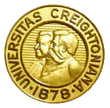|
|

Front
Page
Top
Issues
Legal Opinion
Law
Books
ALR
Search
Viewer
E-mail
Advertise
Masthead

Supreme
Court
State Courts
Cyber Law
Intellectual Property
Scales of Justice
Education Law
Human Rights
Ethics Practice
Real Estate Law
Criminal Law
Law School
Social Policy

Bulldog
News
California Star
Clovis Free Press
Daily Republican
Fresno Republican
Reagan Library
SierraPortal.com
Tower District News
ValleyPress.com
WebPortal.com
Yosemite News
Free Classifieds
|
|
 |
|
|
March 19, 2001
When You Get Friends
& Relatives
To Invest in your e-Firm
And You Lose It All
What Never To
Say!
Howard E. Hobbs, J.D., Ph.D.
LOS ANGELES - When Alec Hudnut
and his partner, Tom Geniesse, decided to start an Internet business
they had marvelous dreams and a little financial backing and some
well-heeled friends and relatives.
Mr. Hudnet says he borrowed $500,000
from family and friends and set off to make the world wide web
his own personal oyster. His idea
was to sell business schools on Internet training to schools.
But, just as he was setting-up his bank account the economy went
bust and the flow of venture capital from friends and relatives
evaporated overnight.
By that time, however, Hudnut had formed
the business he called University Access (UA). And by that
timeUA had no business and a lot of debt. To save face
and UA from immediate bankruptcy, Hudnit hit upon the idea
that instead of begging for funding from people he already owed,
he migh look to other sources of freemoney to bailout his ill-timed
venture. 
So, Hudnut decided to change the major focus of its business,
to what he hoped would be a more lucrative business name, he changed
the mission from university online coursses to corporate
online courses.
Hudnut's new focus would no longer be
on university accredition and univsersity professors with doctorates.
Of the percipitous change in business plan, Hudnut later
said it was all about money, "You have to keep getting funded
or you die ... when you are a young company, that means getting
funding."
Hudnut is now reporting that that
Quisik is still not out of the "red" but "...it
might be only a year or so from being a profitable company."
Hudnut was recently attending a Wharton
School seminar in which he attempted an explanation for his
business reversals. He explained those in attendance. He described
his business experience as a metaphor for a game in which
investors would offer him a dollar of their own money to purchace
a company and then they would flip a coin to see how well they
would do.
" The first flip - if it were heads,
that would double their money. If it were tails, that would quadruple
it."
"The second flip - if it were heads,
that would double their money again, and tails would raise the
return on their investment by a factor of 10 times."
"The third and final coin flip -
If that were heads it would drop their take by 90%, while tails
would only cut it in half."
Mr. Hudnet, concluded, "Phase I
was the early stages of Internet business funding, with significant
amounts of money and some good ideas that were funded well. Then
came Phase II, the real Internet boom, when "you didnít
even need a resume," Hudnut said. "Money came from everywhere
Ė lots and lots of money." But then came Phase III, the
"death of the Internet." No one was investing much money
anywhere."
However, Hudnut said, for "Quisic
itís Phase IV. E-training is in a rapid consolidation
phase and we are the players looking for mergers and acquisitions."
He said that, for him, understanding
funding is essential, and that knowwledge shifts over time. "Your
business strategy cannot be dreamed up in isolation. Hudnut
said Quisic will eventually get back into doing academic training.
Rightnow, corporate training sessions are "a lot more lucrative".
The corporate side pays $100 an hour, he said. "On the academic
side, maybe itís $5 an hour per student, so you need the volume.
The Tuck
School, in partnership with University Access (Quisic
originally went under the name "University Access")
contracted for an online version of real-time program in November.
But by August 2000, Hudnut was finding it tough sledding. He then
changed its name to "Quisic" in hopes of obtaining fresh
grants to offset financial reverses by the operation. With the
newidentity, he was able to manuever financing which he spent
on purchasing Internal & External Communication Inc. (IEC)
from its Amsterdam-based parent company, Wolters Kluwer.
The acquisition of the 17-year-old corporate
training company was, perhaps, the first real step in bringing
Quisic closer to its goal of paying its own way if the economy
didn't fall into recession.
The acquisition was completed through
a combination of some new cash but largely stock that Hudnut said
had a street value "exceeding $10 million in 2000."
Then the economy began to slide. The
down-side on financing e-training by loans from relatives and
personal associates and corporate grants is the relatively high
cost of the delivery system in relation to the relatively high
risk of ununstable economy at any given moment and the liklihood
of failue of management to see the inevitable downside of nearly
all new traditional business venture, especially that of undercapitalized
and novel e-business model.
[Editor's Note: Quisic,
is now based in Marina del Rey, California. It is now marketing
online support for management services and business solutions.]
|


|
|
 |
|
|
|
![]()
![]()
![]()







